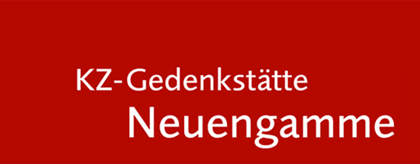03/18/2022 News
What are we doing as a memorial in light of the war in Europe?
How do we react as institutions engaged in the culture of remembrance and as individual people in the face of the catastrophe just a few hundred kilometres to the east of us? How do we spring into action so as not to remain in a state of consternation?
In recent decades, memorials that commemorate Nazi crimes have striven to impart knowledge about the persecution and murder. But the mission is also about reconciliation and peace work.
Bridges to understanding
As a foundation, we want to maintain bridges of understanding so that in the future we can once again open up and follow paths to remembrance work and a transnational culture of remembrance. To do this, we support the people who are working and have worked for diverse and democratic cultures of remembrance and scholarship in Ukraine, but also in Russia and Belarus. That is why the Foundation has created a scholarship that gives endangered researchers the opportunity to work in the archives at the Neuengamme Concentration Camp Memorial and to participate in current projects. We are pleased that we will hopefully be able to host a staff member of the liquidated scientific and human rights organisation "Memorial International Moscow" in the coming weeks.
“Ukrainian Hours”
We have also begun the digital format of a "scholarly bridge": In the "Ukrainian Hours", colleagues report weekly on their historical research and investigations or give current reports. Many colleagues, many of whom we have been in contact with for years, either lost their jobs at the beginning of the war or had to leave their homes. The format is intended to create, as far as possible in the war situation, a safe, digital space where colleagues can meet, talk and listen. We are addressing academics in Ukraine who either cannot or do not want to leave the country. As colleagues, we would like to offer them at least short-term and ad hoc support. For us, the openness and willingness of our colleagues from Ukraine opens up an enormous broadening of horizons - scientifically, collegially and humanly. So far we have spoken with Tetiana Pastushenko, Lyuba Danylenko about the current situation of former survivors of Nazism and Taras Martynenko spoke about the Nazi occupation in Lviv/Lemberg/Lwów. We plan to continue the "Ukrainian Hour" initially until about the end of April, as far as this is possible. Further talks are planned, including talks with descendants of Neuengamme survivors and on the history and current situation of minorities in Ukraine. For more information, please contact referentin@gedenkstaetten.hamburg.de.
"Support network for survivors of Nazi persecution in Ukraine"
Many elderly victims of Nazi exploitation and extermination and their relatives are also affected by the war situation. We are actively involved in the newly founded "Aid network for the survivors of Nazi persecution in Ukraine" (www.hilfsnetzwerk-nsverfolgte.de), which provides relief supplies to survivors of Nazi persecution, colleagues and cooperation partners. On behalf of the aid network, we ask for support for the call for donations below for the coordinated and unbureaucratic support of former Nazi persecutees, their relatives and partners of the network.
We would also like to take this opportunity to thank the Freundeskreis Neuengamme e.V., which maintains contact with the survivors of the Neuengamme concentration camp in Ukraine and their relatives and provides them with humanitarian support. You do a great work!
Sarah Grandke / Alexandra Köhring
Appeal Letter for Donations "Support network for survivors of Nazi persecution in Ukraine" (English)
Appeal Letter for Donations "Support network for survivors of Nazi persecution in Ukraine" (French)
Appeal Letter for Donations "Support network for survivors of Nazi persecution in Ukraine (Russian)

